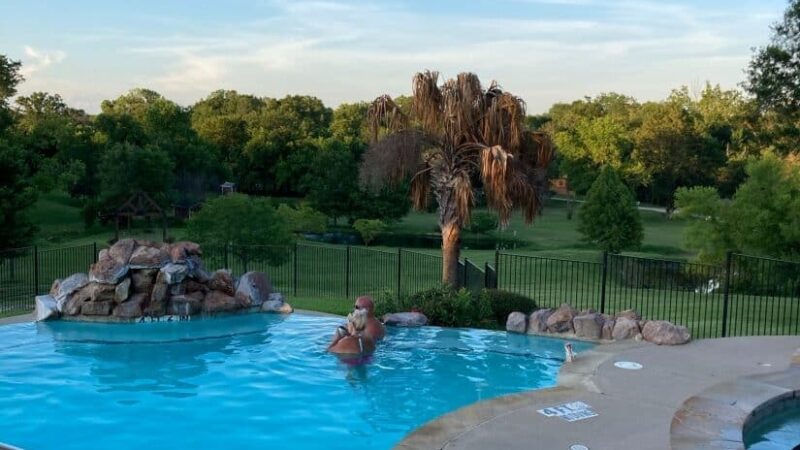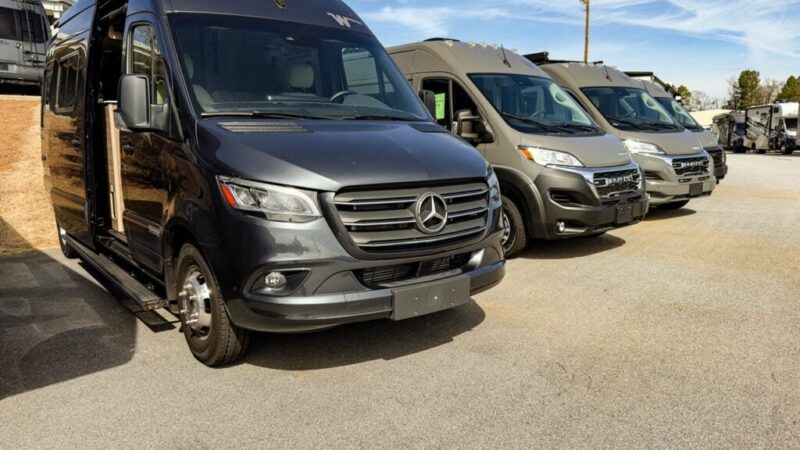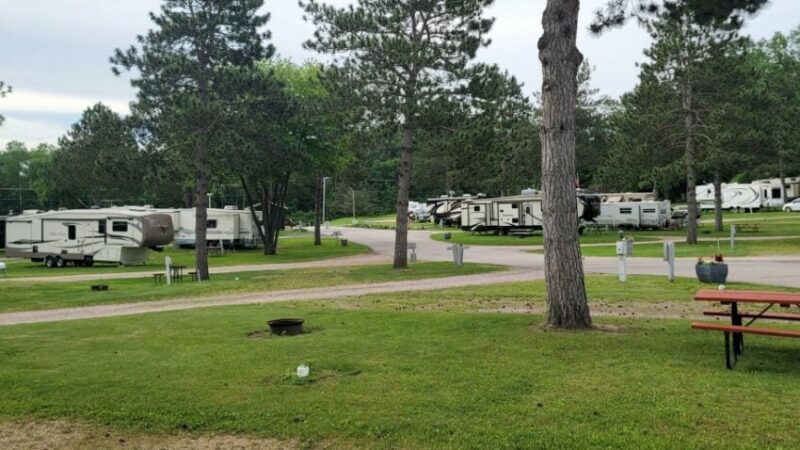RV Maintenance Tasks Full-Timers Should Never Ignore
One of the only downsides to living in an RV full time? RV maintenance. That said, staying on top of RV maintenance is the key to ensuring your rig lives a long and healthy life, and all of this is especially important if your RV happens to be your home. No, it isn’t particularly fun or exciting, but if you do all of your maintenance yourself, it can be a great learning experience and it’s the only real way to protect your investment.
Not sure where to begin? The RV maintenance tasks below are the most crucial ones that you definitely don’t want to ignore.
Roof Inspections and Sealing
First, let’s talk about your roof and seals. These are the things that keep water out of your rig, and considering how much damage water can do to an RV, you will want to take good care of them.
Every three months (and after extreme weather), inspect your roof for cracks and other issues, and look at all parts of the RV for worn-out seals and damage. Repair damages to the roof immediately and apply sealant as needed to prevent water damage.
Tire Care and Pressure Checks
Blowouts are a serious hazard for RVers. They can cause a rig to go out of control, and even if a blowout doesn’t cause injury, it can cause serious damage to the RV itself.
Because of this, you should make sure to check tire pressure before every trip. You’ll also want to inspect tires for wear each time you drive and rotate tires as recommended by the manufacturer. Never drive on damaged or bald tires, and always replace tires before they are 6 years old.
You can also install a tire pressure monitoring system, which will help you monitor the tires as you drive.
Creativepart on iRV2 says, “RV tires age out before they wear out due to mileage. There is a DOT date code on the sidewall of your tires. It shows the year and week of manufacture. Most recommend replacing tires between 5 – 7 years after manufacture. Some extend this as far as 10 years, but for safety I think the consensus is 5 – 7.”
Brake System Inspections
Obviously, your RV’s braking system is pretty darn important as well. Unfortunately, it also sees a lot of stress. After all, it takes a lot of work to stop all of that weight, especially at highway speeds.
For this reason, it is imperative that you regularly inspect and service brake pads, rotors, and fluid levels. You’ll also want to have a professional check the brakes annually or if you notice reduced braking performance.
Battery Maintenance
Did you know RV batteries require maintenance? I didn’t when we first got on the road, and we went through a couple of batteries pretty quickly before I found that out. Not only should you keep them clean, fully charged, and inspect for corrosion regularly, but if you have flooded batteries, you’ll also need to check the fluid levels and top them up when they get low.
For long-term parking, use a battery maintainer to prevent discharge and make sure to test the voltage before each trip to ensure the batteries are still good and ready for camping.
Waste System Upkeep
Nobody wants a camper that smells like poop. This is why it’s so important that you stay on top of holding tank maintenance. Fortunately, this is not as gross as it counts. Just make sure to keep the tanks closed until they are at least half full and dump at the end of every trip. After dumping, rinse with a backflush tool and add about a gallon of fresh water to the black tank to ensure solids don’t dry up and stick to the tank.
Many RVers also like to add an enzyme-based treatment to the tanks to help break things down.
Water System Maintenance
The waste tanks aren’t the only part of an RV water system that requires maintenance. You’ll also need to take good care of your water lines and freshwater tank. Keep an eye out for leaks, check under sinks and behind the toilet often while the RV is in use, and address leaks immediately when they are found. Flush out the water heater at least once a year and replace the anode rod (if applicable) as needed.
Make sure to winterize the entire water system before the first freeze of the year, and make sanitizing the fresh tank and lines a part of your dewinterization routine.
Propane System Safety Checks
While propane appliances are super handy for boondocking and an RV must-have in my book, leaks in the propane system can be dangerous. If you smell propane, leave the rig and open it up so it can air out. Inspect hoses, regulators, and connections for leaks using a soapy water solution until you find the leak and can repair it.
If you cannot find the leak, call in a professional. It’s also a good idea to have the entire system checked by a professional once a year.
HVAC System Cleaning and Filter Replacement
For me, one of the best parts about RV camping is the ability to control the air temperature in the rig. I just can’t stand to be cold or hot while I sleep.
Fortunately, a well-maintained HVAC system ensures comfortable camping all year-round. That’s why it’s important to clean air filters regularly when in use and clean A/C coils annually. Do this and your HVAC system should keep running for a good long while.
Slideout and Awning Care
Our first RV didn’t have a slide-out. I didn’t want one. I had heard horror stories of the issues they could cause and wanted nothing to do with it. We also chose not to use our awning for several months after we started traveling because we were afraid of the issues. The thing is though, slide-outs and awnings are hugely handy to have, and we eventually caved.
The trick to making sure you don’t run into issues using these things is, of course, maintenance. Lubricate moving parts, inspect seals and reseal as needed, and remove debris before pulling in an awning or a slide. It’s also crucial that you bring the awning in before big storms or strong winds blow through.
Electrical System Checks
Ugh, I despise electrical issues, and we always make sure to use a surge protector to prevent as many issues as we can. Unfortunately, we’ve still had our fair share of electrical problems while RVing.
The things we have learned to do when an electrical issue presents itself include inspecting shore power connections, flipping breakers, checking fuses, and looking for tripped GFCI outlets. It’s also a good idea to look for bad grounds and loose wires, which could be extremely dangerous.
On a couple of occasions, we have had to replace plugs, switches, and lighting fixtures. If you decide to take on such a task, make sure you unplug from shore power and disconnect the battery first.
Engine Maintenance
Last but not least, I have to mention engine maintenance. Obviously, this only applies if your RV actually has an engine of some sort. That said, it does apply to both vehicle engines and small engines (such as generators).
In both cases, it is crucial that you exercise the engine at least once a month. A generator should be run under load for 30–60 minutes and a motorhome should be driven a few miles if at all possible. You’ll also want to make sure to keep up with oil changes, air filter changes, spark plug maintenance, and in the case of the vehicle engine, fluid top-ups.
As you can see, there are a lot of different RV maintenance tasks that you should be keeping up with as a full-timer. Keeping it all straight can be difficult. This is why I recommend RV Life Maintenance. This program will keep track of all of your RV maintenance for you, even going so far as to send you reminders when it is time to take care of a task. It might be just what you need to ensure your RV lives a long life and you have a good number of amazing adventures out on the open road!
The post RV Maintenance Tasks Full-Timers Should Never Ignore appeared first on RV LIFE.
Source: https://rvlife.com/rv-maintenance-tasks-full-timers-should-never-ignore/







